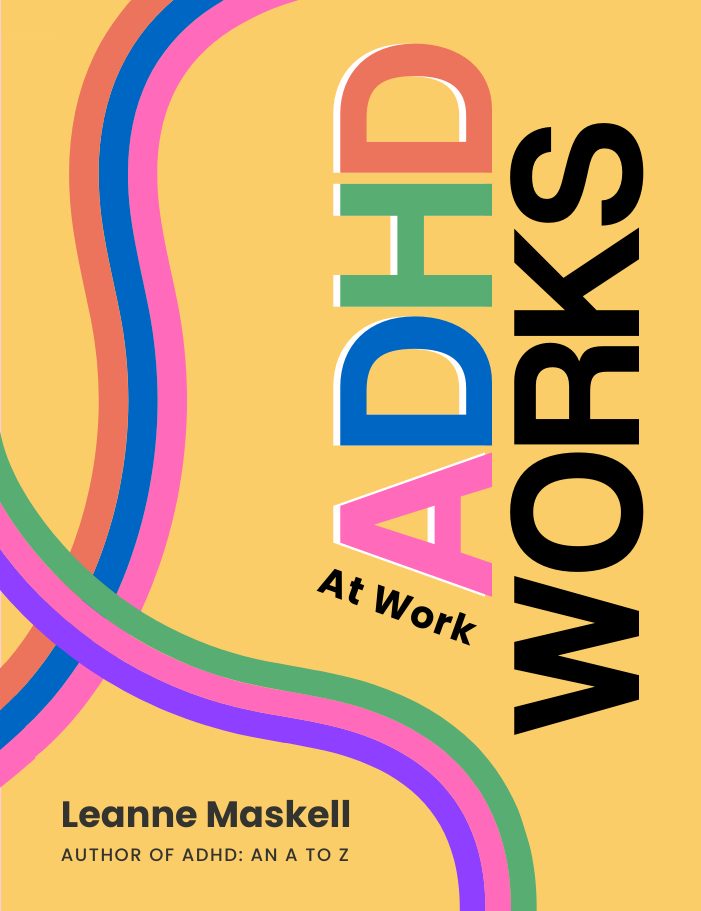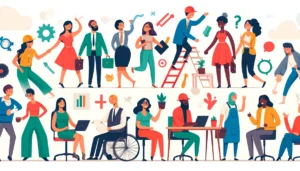1 in 5 neurodivergent employees experience harassment or discrimination at work – how can HR tackle this?
- 5 Min Read
77% of HR professionals have not had any specific neurodiversity training, and cases in the employment tribunal relating to neurodiversity jumped by a third in one year.
- Author: Leanne Maskell
- Date published: Mar 18, 2024
- Categories

an ADHD Coach,
Director of ADHD Works,
author of the new book, ADHD Works at Work.
Unlike bullying, it’s actually unlawful for employers to act in a way, in relation to a person’s disability, which creates a hostile or intimidating environment, or violates a person’s dignity. Employers must also do what is reasonable to protect individuals from this kind of harassment from their colleagues.
Neurodevelopmental conditions such as ADHD, Autism and Dyslexia may be disabilities under the Equality Act 2010, which places these legal duties on employers. Despite this, 77% of HR professionals have not had any specific neurodiversity training, and cases in the employment tribunal relating to neurodiversity jumped by a third in one year.
With compensation awards for disability discrimination uncapped, it’s in everyone’s interests for employers to uphold a psychologically safe working environment.
However, it can be difficult for employers to know where to start, especially as neurodiversity awareness is growing so fast. For example, ADHD has only been diagnosable in UK adults since 2008, and there’s been a 400% increase in the number of people seeking assessments since 2020. This has also seen controversial media coverage often stigmatising the people who are struggling, instead of the system that’s led to 10 year waiting lists for assessments in some parts of the country.
This could result in degrading comments within the workplace based on misinformation, such as employees telling another that they don’t ‘seem like they have ADHD’, or ‘everyone’s a bit ADHD – get over it!’. This harassment can result in significant challenges for neurodivergent individuals who may already be struggling at work.
1 in 5 neurodivergent employees have experienced harassment or discrimination at work, which could also result from a failure to make reasonable adjustments. Employers have a legal duty under the Equality Act to ensure people are not substantially disadvantaged at work because of a disability, in comparison to those who are not disabled, which means making accommodations to ‘level up the playing field’.
This area of law can be challenging for employers to get right, because everybody will have unique needs – there’s no ‘one size fits all’ approach.
However, here’s some ways that HR can create a more inclusive, safer, and happier workforce for everybody:
1) Have accessible policies in place
Many employers have no reasonable adjustments, neurodiversity or disability policies in place, with more than two thirds of employees with invisible disabilities saying they have to source reasonable adjustments alone.
However, failing to provide a clear route or structure for these conversations to happen means employees have to figure it out by themselves, often with no training or support themselves, and therefore get it wrong.
Every organisation should have a clear policy in place breaking down the meaning of concepts like disability and neurodiversity, the process of how conditions can be disclosed, how decisions on reasonable adjustments are made and recorded, and any relevant signposting or next steps. A free template is available here, which can help provide psychological safety and clarity for everyone involved.
HR can also make clear what kind of behaviour is and is not acceptable within anti-bullying policies, specifically referencing topics such as disability and neurodiversity. By providing clear examples of harassment and discrimination, and the serious action that will follow any instances, psychologically safety can be created.
2) Have mandatory training
Initiatives such as general neurodiversity awareness talks are unlikely to attract those who most need to attend, such as HR and managers who may be ambivalent about neurodiversity. As 1 in 7 people are neurodivergent, mandatory neurodiversity training should form part of every employee’s role, aiding effective collaboration, empathy, and high performance.
As neurodiversity can be very far-reaching, HR should also ensure there’s mechanisms in place to facilitate specific training when needed. For example, if an employee discloses a condition such as Dyscalculia to their manager, that manager should receive specialised training on this condition to understand how to provide the most effective support. It’s also very important that managers understand their remit and responsibility in making reasonable adjustments, so these can happen without unnecessary delay and bureaucracy.
HR can also facilitate applications to Access to Work, the UK Government funding of up to £66,000 per year, per person, for people whose health conditions affect them at work. This goes above and beyond reasonable adjustments, but involves an individual assessment and tailored recommendations of support, such as ADHD coaching or training for teams. HR can signpost towards this and help employees with applications. This is extremely easy to do, but often can cause confusion for HR or managers who are unfamiliar with the process, ironically potentially resulting in harassment.
3) Empower employees with education, skills and support
HR can foster inclusive and supportive cultures by providing education, skills and resources to employees about neurodiversity. For example, our ADHD Champions training teaches ADHD coaching skills and tools for employees to provide support. They receive a logo to signpost this for others, which can be extremely useful, as neurodivergent employees may initially feel nervous about talking to their manager or HR about their experiences.
HR can also support the creation of employee resource groups, such as by establishing neurodiversity networks. Employee-led groups are often the best resources to learn about the reality of neuro-inclusion (or lack of it) within an organisation, but it’s important that those running these groups are properly supported to avoid burnout, such as by adjusting their workloads accordingly.
Ultimately, the cause of much discrimination and harassment against neurodivergent people in the workplace is a lack of understanding, which HR has the power to change.
Having a neuro-inclusive culture is not a box to be ticked, but a culture shift whereby everyone is recognised, supported, and celebrated for contributing their differences to work, instead of excluded for it.

Leanne Maskell is an ADHD Coach, Director of ADHD Works and author of the new book, ADHD Works at Work.









